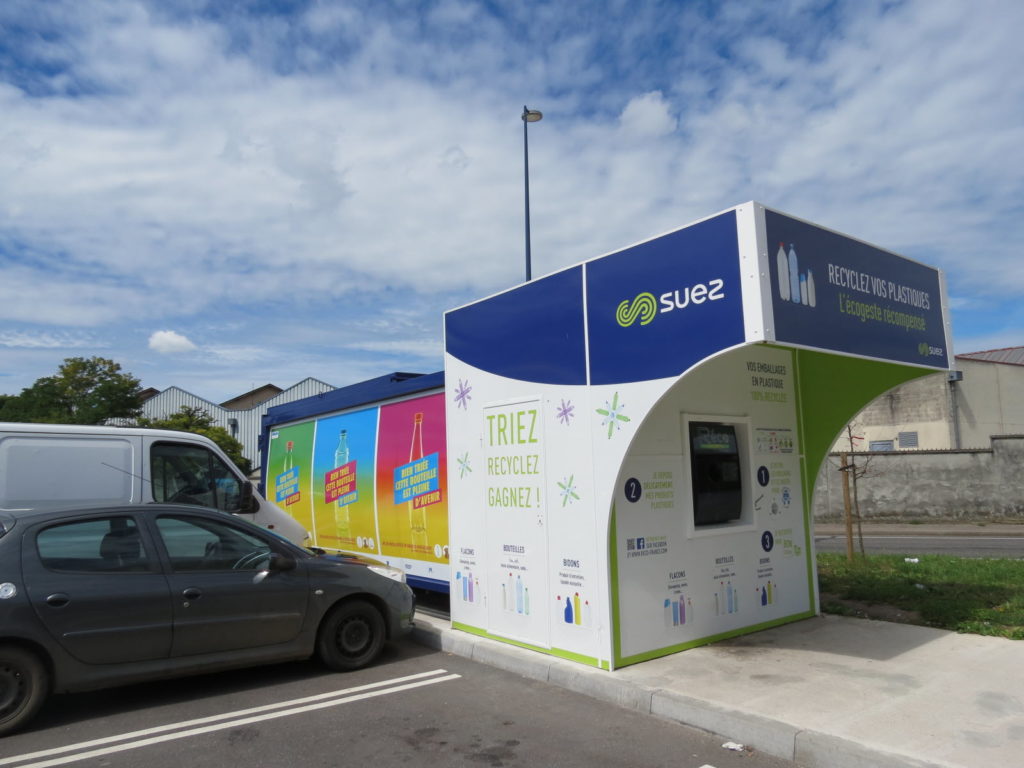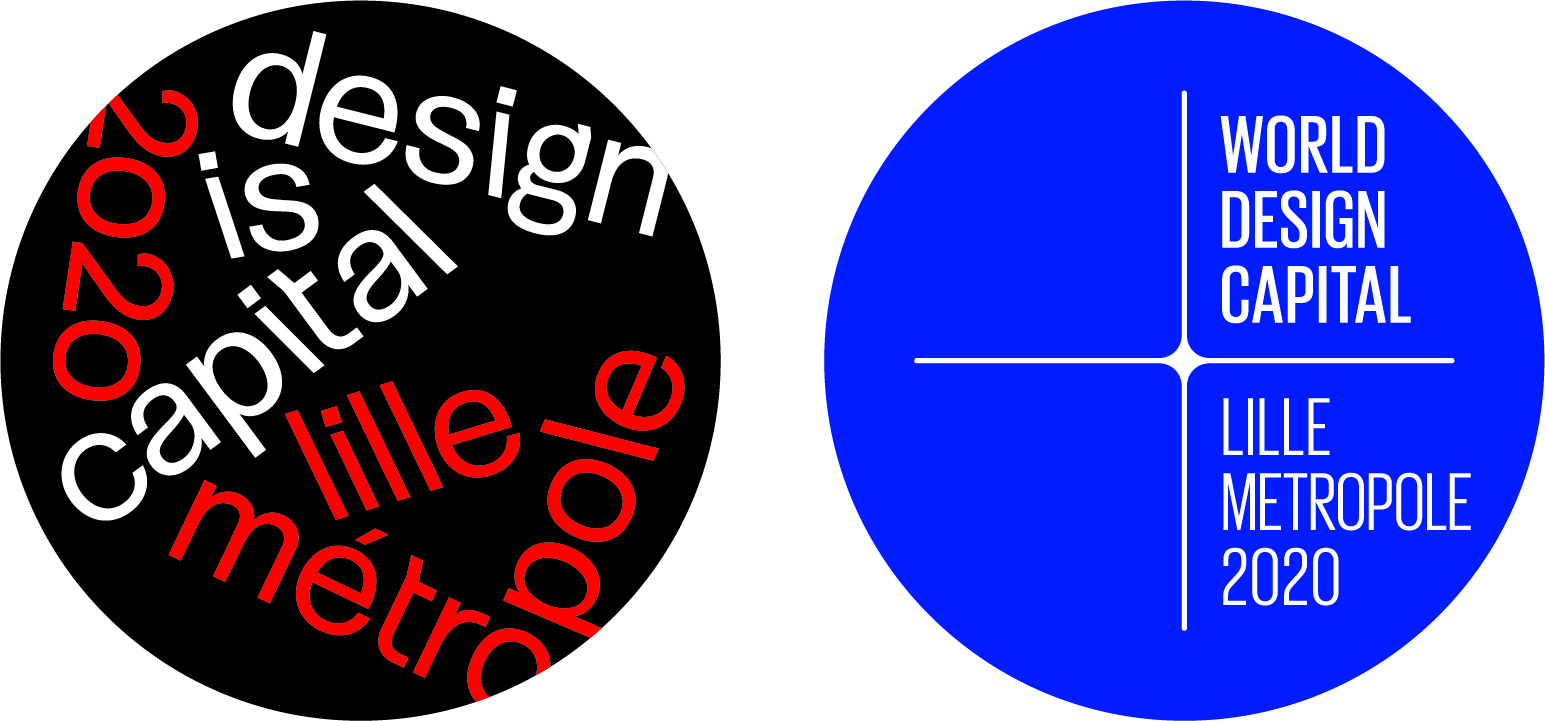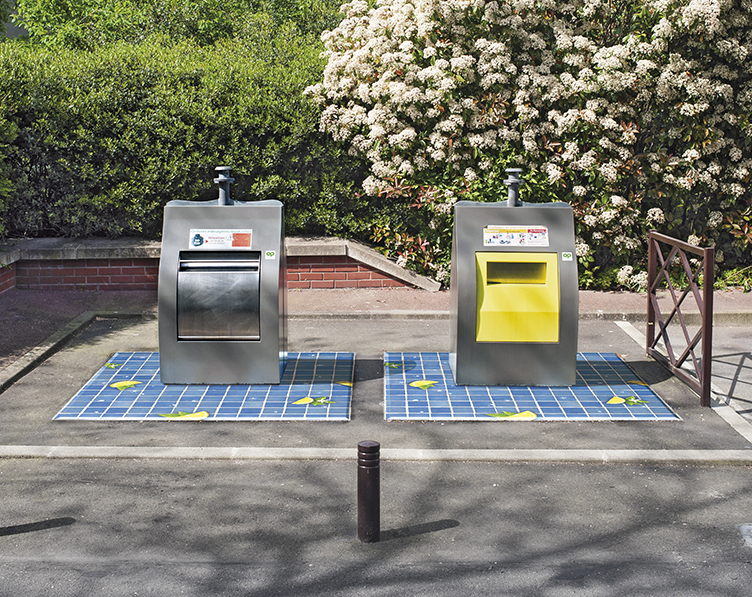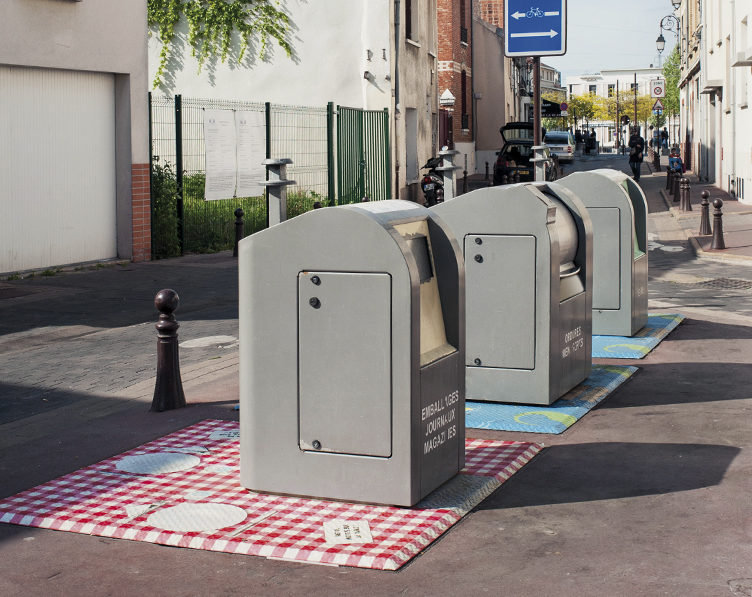POC Suez Environnement – l’apport volontaire vers un service intelligent, propre et connecté
Sorting waste out of the trash
“having a bottle bank outside your house can be a livinghell: the noise of bottles breaking any time of day and night, all the junk people leave behind, alcoholics emptying what little is left in the bottles… “
Not on my side walk
Bottle bank services are not new, but they might just not have found their right utility yet, and as a result, we generally don’t want them in front of our home!
Suez Environnement, who manages and develops voluntary waste sorting systems for the local community, raises questions about the design of the containers, the places where they are located, and in generalterms, the quality of the service provided to users, as something intelligent, clean and connected : what’s the best way to share the location of such containers in the city? How do you give out sorting instructions and develop a user pedagogy? How do you limit night use in order to reduce noise pollution? How do you design the containers and their environment to ensure greater synergy with neighbourhood practices? In short, how do you move out the waste sorting from the trash and its consecutive negative connotations?
Voluntary and connected
Contrary to what one might think, most voluntary waste sorting stations involve quite sophisticated products : for instance they are equipped with load cells that notify removal services when almost full and trigger the passage of a collection truck. From this derives a whole range of possible applications in terms of traceability (weighing the containers, identifying users, place optimisation in compliance with user provenance, valuing of observing users, etc). If containers were to better explain their practices to confused users, if they were to provide benefits to those recycling their bottles, if they were to become more practical, still, voluntary waste sorting zones would not be considered friendly places, however they could become more welcoming, for the users, for collection services, for the city and for the neighbourhood …

- Project holder : Suez
- Photo credits : Suez


